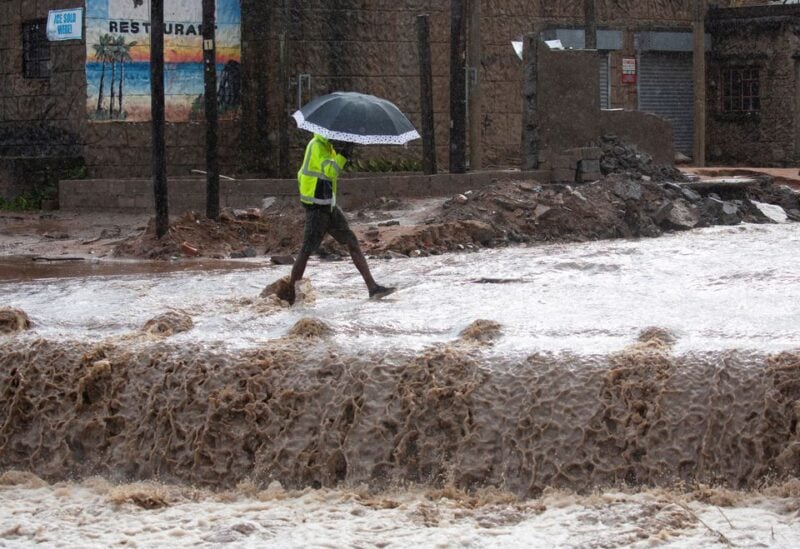
Hundreds of people have been evacuated to safety as heavy rains hit South Africa's coastal region of KwaZulu-Natal again on Sunday, flooding roads and residences and causing property damage, according to a government official.The government is currently working to repair damaged infrastructure and re-house residents who were displaced by flooding last month, which was among the worst in the province's recorded history. The April floods killed 448 people, with 88 still missing, displaced over 6,800 people, and damaged infrastructure worth more than 25 billion rand ($1.58 billion).
Hundreds of people have been evacuated to safety as heavy rains hit South Africa’s coastal region of KwaZulu-Natal again on Sunday, flooding roads and residences and causing property damage, according to a government official.
The government is currently working to repair damaged infrastructure and re-house residents who were displaced by flooding last month, which was among the worst in the province’s recorded history. The April floods killed 448 people, with 88 still missing, displaced over 6,800 people, and damaged infrastructure worth more than 25 billion rand ($1.58 billion).
The province had received early warnings from the South Africa Weather Service, alerting it to further disruptive rainfall on Saturday in a number of towns, including Durban, the worst hit by the previous floods.
“So far the greatest impact is expected along the coastal and north-eastern parts of KwaZulu-Natal,” Sipho Hlomuka, member of the executive council for Cooperative Government and Traditional Affairs told journalists.
He said approximately 250 people had been evacuated from care centres in Tongaat and Tehuise in Durban, including retirement villages, to other facilities. Only one family was evacuated due to the collapse of an informal dwelling.
“This heavy rainfall has resulted in the flooding of roads, human settlements and damage to properties. We understand that some areas are inaccessible and have become islands at this stage,” he said, adding they had yet to receive a full report on the impact of the latest heavy rains.
Rainfall persisted on Sunday in some parts of KwaZulu-Natal, the South Africa Weather service said, as the alert level remained at the highest and most severe level of 10.
Scientists believe the southeastern coast of Africa is becoming more vulnerable to violent storms and floods as human emissions of heat-trapping gases cause the Indian Ocean to warm. They expect the trend to worsen dramatically in coming decades.